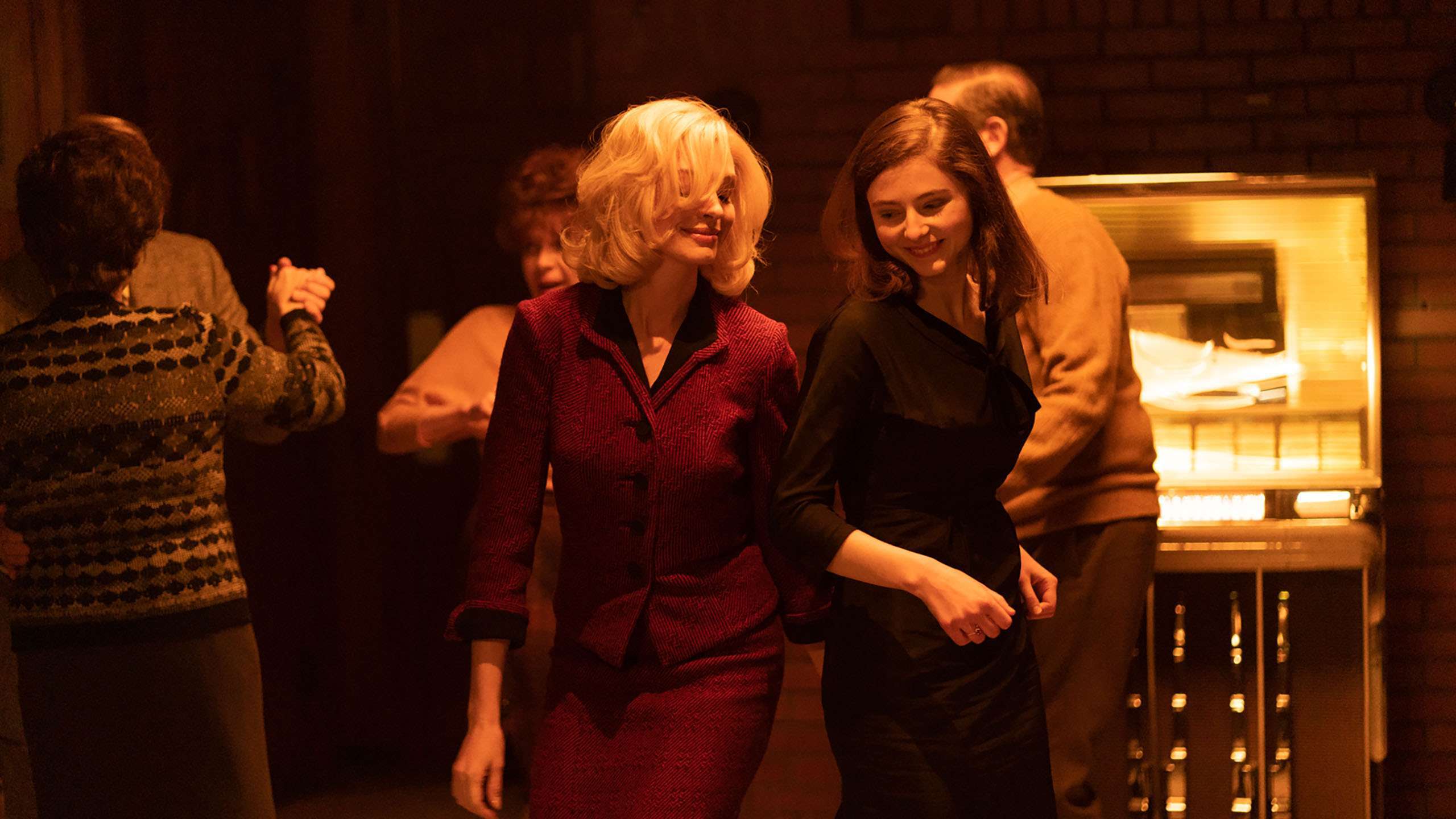A Riveting Tale of Transformation and Transgression
In “Eileen,” director William Oldroyd presents a poignant and moody narrative that delves deep into the human psyche, showcasing the transformative journey of its protagonist, Eileen (Thomasin McKenzie). Set against the grim backdrop of a small Massachusetts town, this film is a masterful adaptation of Ottessa Moshfegh’s first novel, brought to life through the compelling performances of McKenzie and Anne Hathaway.
William Oldroyd’s “Eileen,” an adaptation of Ottessa Moshfegh’s novel, stands as a compelling cinematic experience that brings subtle yet significant changes to its title character. In the film, Thomasin McKenzie portrays Eileen with a nuanced delicacy, offering a slightly altered version from the book’s depiction.
The novel’s Eileen is intensely internalized, her world steeped in bodily filth and psychological darkness. The book delves deeply into the grotesque aspects of her existence, using visceral descriptions to paint a portrait of a woman in turmoil. The film, while maintaining the essence of this character, opts for a more restrained approach. McKenzie’s Eileen is less about the overt display of her internal filth and more about the emotional and psychological landscape she navigates. This subtlety makes her more accessible to the audience, inviting empathy without the raw harshness of the novel’s descriptions.
Eileen’s world is one of profound ugliness — from her dilapidated home with her alcoholic father to her dreary job at a juvenile detention center. Yet, the film’s brilliance lies in its ability to immerse the audience in this desolate environment, making Eileen’s monotonous life almost palpable. The arrival of Dr. Rebecca St. John (Hathaway), a figure of glamour and mystery, marks a stark contrast to Eileen’s drab existence, igniting a pivotal shift in her life.
The film excels in its refusal to simplify its characters into easily digestible archetypes. Eileen, portrayed with a raw and unvarnished authenticity by McKenzie, is not just a shy, repressed young woman; she’s a complex individual teetering on the brink of self-discovery and potential self-destruction. Hathaway’s Rebecca is similarly multifaceted, her charismatic facade masking a more troubled and manipulative nature.
Oldroyd’s direction is subtle yet powerful, opting to leave certain aspects of Eileen’s inner world to the audience’s imagination rather than spelling them out. This choice adds a layer of mystery and ambiguity to the film, inviting viewers to engage more deeply with the characters’ motivations and emotions.
The film’s exploration of loneliness and alienation is reminiscent of classic 1970s cinema, evoking a sense of existential ennui and emotional dislocation. Yet, “Eileen” stands out for its unique portrayal of a young woman’s awakening in an oppressive environment. McKenzie’s performance is particularly noteworthy, as she captures Eileen’s transformation from a passive observer of her life to an active participant, albeit in a disturbing and unconventional way.
The relationship between Eileen and Rebecca is the film’s centerpiece, characterized by a dangerous blurring of boundaries and a mutual attraction to each other’s abyss. Their interactions are charged with a mix of fascination, repulsion, and an unspoken understanding, creating a tense and captivating dynamic.
“Eileen” is not just a story about a young woman’s metamorphosis; it’s also a commentary on the human condition – the yearning for connection, the allure of transgression, and the painful process of coming into one’s own. It’s a film that challenges viewers to confront the uncomfortable realities of life, to look beyond appearances, and to acknowledge the thorns that inevitably accompany the stars.
In theaters now, “Eileen” is a must-watch for those who appreciate cinema that dares to explore the darker, more intricate facets of human nature.

